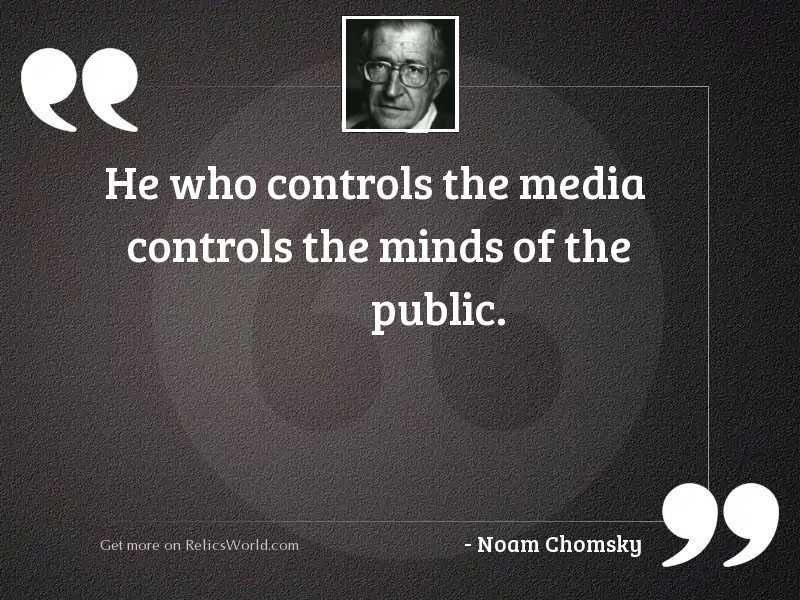
You have to whip them up into fear of enemies. Just having them watch the Superbowl and the sitcoms may not be enough. In such circumstances you've got to divert the bewildered herd, because if they start noticing this they may not like it, since they're the ones suffering from it. If you look at the domestic programs of the administrations of the past ten years-I include here the Democratic opposition-there's really no serious proposal about what to do about the severe problems of health, education, homelessness, joblessness, crime, soaring criminal populations, jails, deterioration in the inner cities - the whole raft of problems. Nobody in power has any intention of doing anything about them. The Open Media Pamphlet Series, (2002): 1-27.“There are growing domestic social and economic problems, in fact, maybe catastrophes. Media control: The spectacular achievements of propaganda. Through intensified expository points, the author reveals how strategic propaganda has blinded the public from realizing they are indirectly denied a chance to participate in critical decision-making concerning the nation.

ConclusionĬhomsky exposes how the political influence threatens democracy and participation of the bewildered herd.

This reveal is made through a causal argument that suggests that the controlled media has played a significant role in deceiving the public of their freedom to participate in national matters. This supports his purpose as an author, which is to bring into perspective how politicians use the commoner to achieve their interests. In the book, specialized class individuals are portrayed as powerful and the ultimate decision-makers, while the bewildered herds are spectators and victims of cruel decisions. Also, the “bewildered herd” is an idiomatic expression used in the book to add character and dynamism to the referenced.Īlso, the author divides his audience into two, one from the specialized class and the bewildered herd (Chomsky 3). For instance, “Tear the Germans limb to limb, go to war and save the world” (Chomsky 1) is a phrase used to explain how Woodrow Wilson’s administration influenced the public through propaganda to destroy the perceived enemy.

Chomsky’s explanation of concepts is descriptive with idiomatic expressions.


 0 kommentar(er)
0 kommentar(er)
